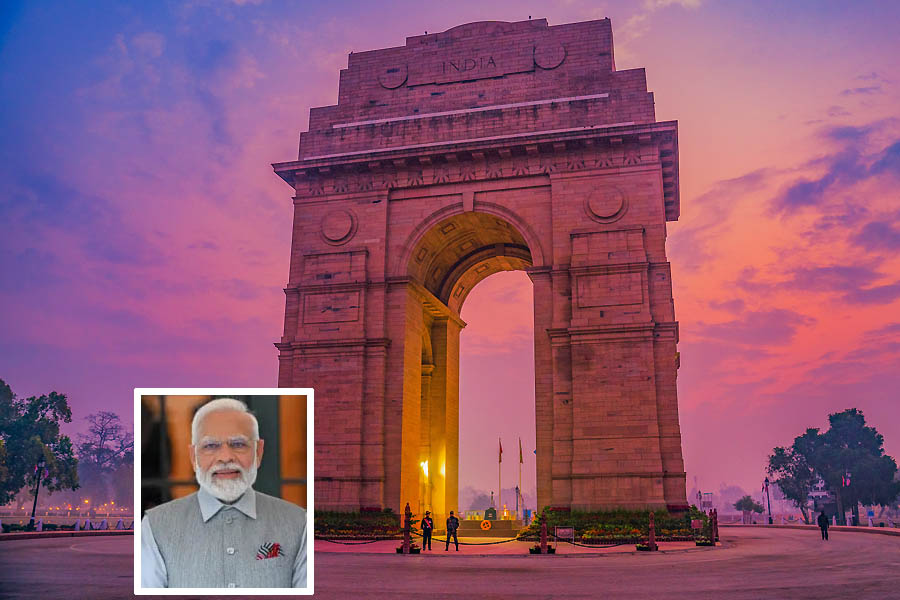
In the nine years since Prime Minister Narendra Modi's government came into power, India's social media landscape has become a harsh reflection of the deep-seated hatred and violence pervading the nation. Recent events in the northeastern state of Manipur have plunged the country into a new level of shock and dismay, even by the already lowered standards of online brutality.
A disturbing video clip surfaced in July, revealing the grotesque sexual assault of two women, stripped naked and paraded by a mob of men in Manipur. Tragically, one of the victims was subsequently gang-raped, as confirmed by a police complaint. These horrific scenes unfolded within a broader context of escalating ethnic violence that has turned Manipur into a war zone since May, resulting in over 150 fatalities and the displacement of tens of thousands.
Historical Ethnic Animosity and Political Catalysts
Manipur has a long history of simmering ethnic tensions, predating Modi's rise to power. However, the fuse igniting the present unrest can be traced back to the politics of Hindu supremacy, xenophobia, and religious polarization propagated by Modi's Bharatiya Janata Party (BJP). This has fostered an environment of exclusionary politics aimed at rallying the party's base and transforming India's secular republic into a Hindu-majority state.
The Bleak Path Forward: Sectarian Violence on the Rise
India, with its intricate tapestry of religious, ethnic, caste, regional, and political divisions, has suffered the consequences of the BJP's divisive policies. These policies have sowed the seeds of exclusion and hostility, particularly targeting minorities such as Muslims. Vigilante mobs, operating with impunity, have mercilessly assaulted Muslims, while lynchings and calls for genocide have become distressingly common. Shockingly, India has now ranked among the top 10 countries with the highest risk of mass killings, according to the Early Warning Project, an organization dedicated to assessing global risks.
Manipuri Christians Under Fire: BJP's Role in Fanning Flames
Christians in Manipur have borne the brunt of this unrest, with the BJP-led state government exploiting the insecurities of the predominantly Hindu ethnic Meitei population. The BJP has labeled the Christian Kuki tribes inhabiting hill districts as infiltrators from Myanmar, blaming them for poppy cultivation and eviction from their forest homes. The catalyst for the current violence was a court ruling favoring Meitei affirmative action, igniting protests from the tribal communities opposing the decision. Additionally, a citizenship verification drive has violated Kuki privacy, similar to actions in neighboring Assam that have disenfranchised millions.
Rampage of Violence: Meitei Militias and Sectarian Attacks
Emboldened by government rhetoric, Meitei militias in Manipur have wreaked havoc, engaging in rapes, pillaging, looting, and the burning of villages. Churches have been a specific target, with more than 250 burned down. The deeply disturbing video that emerged in July depicted Meitei men sexually assaulting Kuki women, reflecting numerous similar attacks. Modi has condemned the incident but remained largely silent on the chaos.
The Ripple Effect: Violence in India's Heartland
The impact of divisive politics is not limited to Manipur; it has also erupted in India's heartland. Near New Delhi's tech and finance hub, clashes between Hindu supremacists and Muslims recently resulted in violence, mosque attacks, and deaths.
The Role of Media and BJP's Polarization Strategy
India's media landscape, including television, cinema, and social media, has been utilized to radicalize the Hindu majority by perpetuating Islamophobia and extremist ideologies. Underpinning this strategy is the BJP's relentless demonization of its nearly 200 million Muslim population.
A Precarious Crossroad: Conflict or Prosperity
India's rich tapestry of regional identities is held together by delicate social and political bonds. However, under Modi's leadership, these bonds are rapidly deteriorating, stifling nonviolent political engagement. The BJP's attempts to centralize and impose a Hindu-first agenda are met with resistance from regional parties that view it as cultural imposition.
India's Global Significance and Perilous Trajectory
As a populous and rapidly growing nation, India's trajectory holds global significance, both geopolitically and economically. While leaders like President Biden engage with Modi, downplaying assaults on liberalism, it's crucial to recognize that a political strategy of humiliating and subjugating ethnic and religious minorities threatens India's potential as an economic powerhouse.
A Stark Choice: Conflict or Prosperity
India's fate hangs in the balance between becoming a conflict zone or a thriving economic powerhouse. The nation's trajectory is becoming increasingly clear, as sectarian violence and political polarization continue to tighten their grip. The path ahead requires decisive action to preserve the nation's unity and harmony, steering away from the dangerous brink of conflict.
As outsider eye on India: In contemplating the unfolding narrative in India, particularly the distressing events in Manipur, it becomes evident that the nation stands at a crossroads of historical significance. The lens of social media has starkly magnified the deep-rooted challenges that have emerged over the past nine years under Prime Minister Narendra Modi's stewardship. The recent appalling incidents, which witnessed the unimaginable suffering of two women, serve as a painful reminder of the disintegration of India's diverse social fabric, entangled in a web of ethnic, religious, and political tensions.